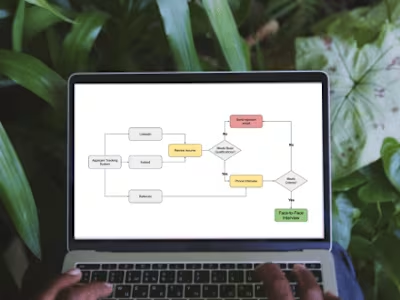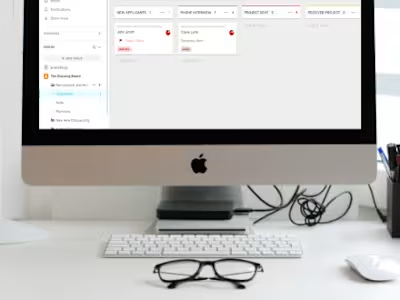Client Management Automation (For Service Providers)
Overview
A design agency wanted to streamline its business processes and not worry about most of the administrative tasks involved in running it. The design agency wants to focus on providing the best creative solutions to their clients while having the assurance that the client experience will be seamless for everyone involved.
What I Did
Audited the existing client experience workflow
Suggested solutions for bottlenecks like delayed payment collections, poor response time to inquiries
Build out an automated client experience workflow that is on-brand
Trained personnel on how to go about their new tools and their new client management system
Interviews with the key stakeholders and sales team were done. The following goals were identified:
improve customer experience
automate the customer experience workflow so they can focus on designing more and less on administrative tasks
shorten response times to inquiries
automating repetitive tasks like sending out payment reminders and appointment reminders
2. Mapping out the client experience workflow
A flowchart is created to break down and visualize all the steps involved. Any tasks that need human intervention are also displayed here.
3. Optimizing the existing processes involved
Once a clear picture of how the client experience works, areas of improvement were identified. Solutions to improve these bottlenecks were presented to the key stakeholders for their review and approval.
All vital feedback was then applied to the desired client experience workflow.
A flowchart was then created for everyone to get a bird's eye view of the workflow.
4. Creating the elements
In order for the client experience workflow to be seamless, the following elements must be created:
Forms
Schedulers
Canned Emails
Payment Schedules
Proposals
Since some of these elements are already existing, they were migrated to the client management system used.
5. Building out an automated client workflow
The client management system used here is Dubsado.
Based on the mapped-out workflow, the sequences are organized and all elements corresponding to the actions involved were then set up.
Personalized branding on all forms, canned emails, and proposals was also done.
6. Testing the client experience workflow
After the client workflow setup, it was tested. Data was inputted in the lead capture form and responses were made mimicking a closed client's answers.
Any problems that arise during the testing were then troubleshot and improved.
7. Training the personnel involved
Once the system has been proven to provide a better customer experience on the side of the client and of the design agency, the personnel who will handle this were then trained.
A walk-through of all the new tools and automation was done. A manual is also created for ease of use.
8. Implementing your new client management system
Since lead capture is the first step in the client experience workflow, the lead capture form was embedded in the design agency's website. It is also then added to all landing pages and social media profiles. The new client experience workflow was then deployed, shortly after.
9. Assisting the personnel
After the implementation, the design agency was given support for 2 weeks. All questions were answered via Slack or E-mail.
_______________________________________________________________________________________
Ready to upgrade your client's experience without losing your sanity on administrative tasks like sending out emails, invoices, and contracts?
Let's see if we're the right match! Book your complimentary discovery call here!
It's time to transform your systems, from stressful to streamlined; from overwhelming to optimized.
Like this project
Posted Jan 16, 2022







